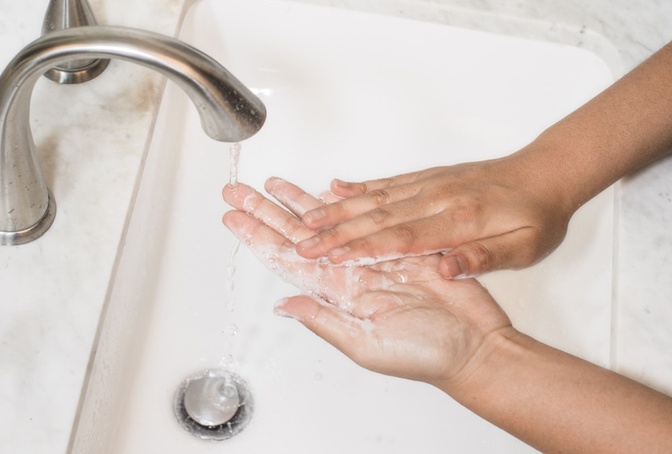Covid-19 is already affecting one in six Australian businesses. Here are some tips on how to support each other, plus the Department of Health’s advice for employers.

Renowned Sydney chef Dan Hong recently penned an article for Broadsheet urging diners to stop fearing the coronavirus and start supporting Chinese restaurants again. Many hospitality businesses are experiencing a massive drop in trade, and popular Melbourne restaurant Shark Fin was forced to close down when trade declined due to coronavirus anxiety.
A recent report from market research company Roy Morgan shows that one in six Australian businesses are affected by the coronavirus, with the education, wholesale, and travel and tourism sectors hit hardest. It’s important that we continue supporting the businesses we love, while taking precautions to prevent the spread of disease. (There’s even a social-media movement urging Aussie diners to eat at Asian restaurants.)
There’s a lot of misinformation circulating right now, which can be confusing for business owners. Should you be taking any precautionary steps? What measures should you put in place? The Department of Health is urging Australians not to panic, and has put together a pretty straightforward (but important) fact sheet of recommendations for employers. Here are some key points.
Businesses should continue operating as usual.
If staff members have left or transited through mainland China or Iran, or been in close contact with someone with coronavirus in the last 14 days, they should isolate themselves (working from home, if possible). Those who departed the Republic of Korea on or after March 5 should also self-isolate for 14 days. Travellers returning to Australia from Italy are currently subject to health screening at the border, but at this stage isolating at home is not mandatory.
If an employee has been in close contact with a person with a confirmed case of coronavirus, they must isolate themselves for 14 days after the date of last contact.
The Department of Health says that with good food preparation and hygiene (which you should practise all the time, anyway) it’s “highly unlikely” the virus will spread through food. While you might still cook lunches at home, there’s no reason to stop treating yourself to Friday lunch out with your team (or using the communal kitchen at work).
Practising good hygiene is the best way to prevent the spread of most viruses. Wash your hands frequently with soap and water before and after eating, and after going to the toilet. Cover coughs and sneezes with a tissue or your elbow, and consider placing some alcohol-based hand sanitisers around the office. If employees feel unwell, they should avoid close contact (distances of 1.5 metres or less) with colleagues as a precautionary measure.
Staff should clean wearing gloves (use hand sanitiser before and after gloves, too). If cleaning the workplace of person with coronavirus, staff “may wish to wear a surgical mask as an added precaution”.
According to the World Health Organisation, you don’t need to wear a mask if you’re not sick. Masks should only be worn by those who are sick, or taking care of sick people. Practicing good hygiene is the best way to prevent the spread of any virus.
The Department of Health stresses that most people displaying flu-like symptoms – such as fever, cough, sore throat and fatigue – are most likely suffering from a common cold, flu or other respiratory illness. If you suspect you have coronavirus, call the National Coronavirus Health Information Line on 1800 020 080 (open 24 hours) or call your GP.
The Department of Health updates coronavirus advice frequently. This article is based on information released on March 6. You can download the full information sheet here.



